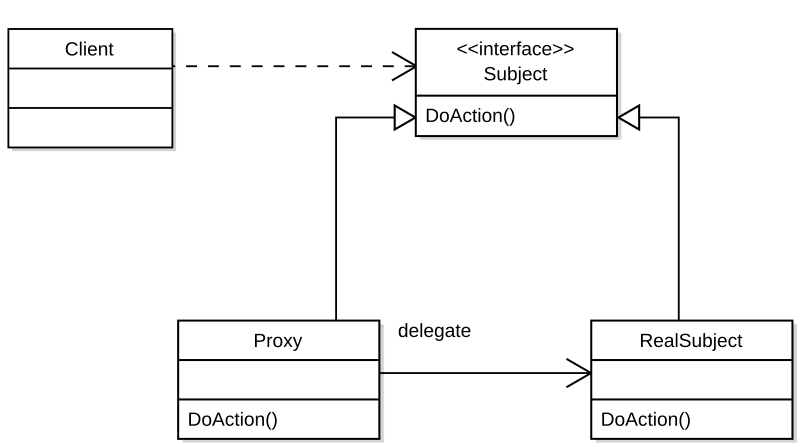#The Proxy Pattern
Intent
Provide a surrogate or placeholder for another object to control access to it.
Motivation
- To defer the full cost of its creation and initialization until we actually need to use it.
- There are situations in which a client does not or cannot reference an object directly, but wants to still interact with the object.
- A proxy object can act as the intermediary between the client and the target object.
Participants
Proxy
- maintains a reference that allows the proxy to access the real subject.
- provides an interface identical to Subject's so that a proxy can be substituted for the real subject.
- controls access to the real subject and may be responsible for creating and deleting it.
- other responsibilities depend on the kind of proxy:
- Remote proxies are responsible for encoding a request and its arguments and for sending the encoded request to the real subject in a different address space;
- Virtual proxies may cache additional information about the real subject so that they can postpone accessing it;
- Protection proxies check that the caller has the access permissions required to perform a request.
Subject
- defines the common interface for RealSubject and Proxy so that a Proxy can be used anywhere a RealSubject is expected.
RealSubject
- defines the real object that the proxy represents.
Applicability
Proxy is applicable whenever there is a need for a more versatile or sophisticated reference to an object than a simple pointer. Here are several situations where the Proxy pattern is applicable:
Remote Proxy- Provides a reference to an object located in a different address space on the same or different machine.Protection(Access) Proxy - Provides different clients with different levels of access to a target object.Cache Proxy- Provides temporary storage of the results of expensive target operations so that multiple clients can share the results.
